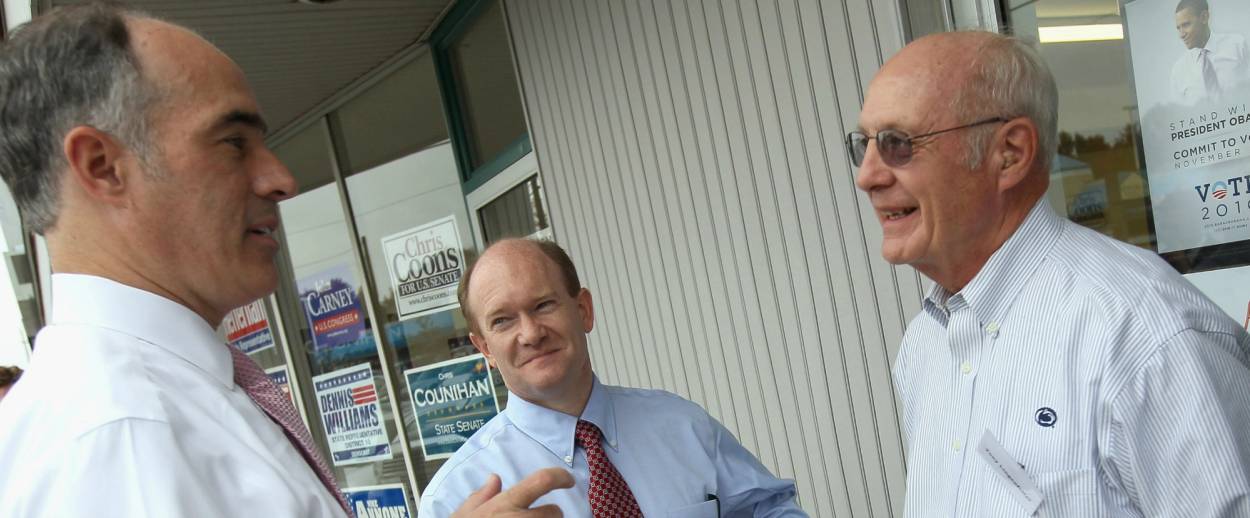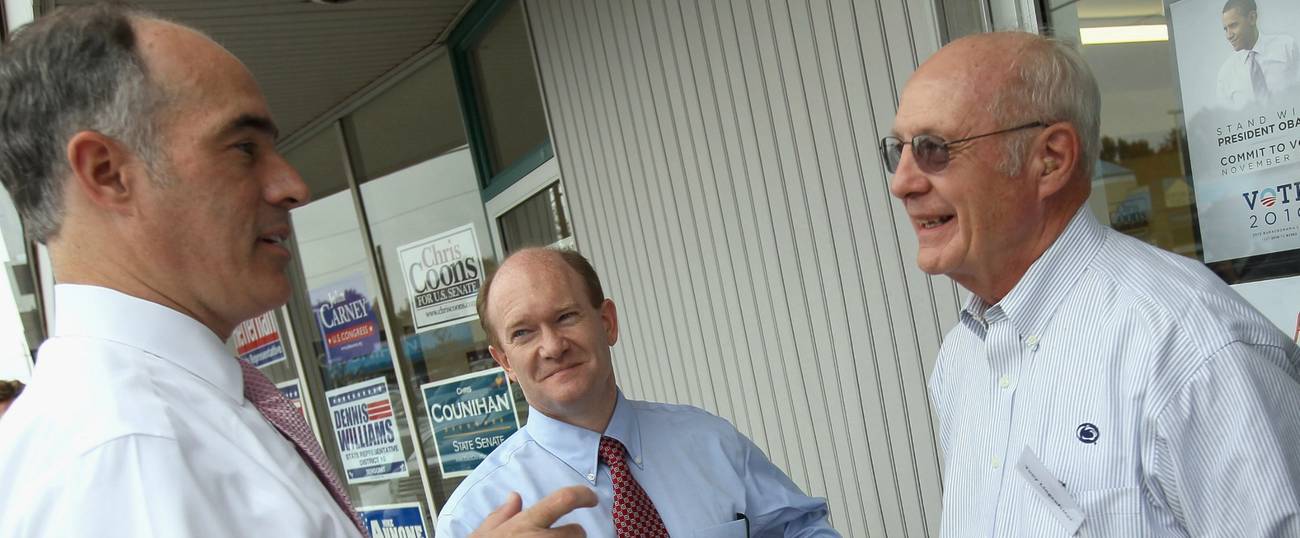As Two Key Senators Come Out in Favor, Iran Deal is Essentially a Done Deal
Democrats Bob Casey and Chris Coons offer cautious backing to accord




This afternoon, Pennsylvania Sen. Bob Casey and Delaware Sen. Chris Coons announced their support for the Iran accord. Unlike the vast majority of similar pronouncements that preceded them, the decisions of Casey and Coons mattered because the two were considered genuine undecided votes on the issue. With their support, President Obama needs just one more vote in the Senate to reach 34–the amount required to sustain a veto of any congressional motion of disapproval on the deal. Barring some unforeseen international disaster or leaked revelation, then, the deal will pass.
Casey, a close ally of AIPAC, had previously co-sponsored several rounds of Iran sanctions legislation. Calling it “one of the most difficult decisions of my public career,” the senator announced his support in an 8000-word piece weighing the pros and cons. “This agreement will substantially constrain the Iranian nuclear program or its duration,” he said, “and compared with all realistic alternatives, it is the best option available to us at this time.”
Coons, a long-time pro-Israel stalwart who had expressed strong skepticism about the deal, made his decision known in an address at the University of Delaware. “Frankly, this is not the agreement I had hoped for,” he said, as it “at best freezes Iran’s nuclear program” but does not end it. At the same time, Coons maintained that the deal ultimately represents the least-bad option going forward. He added that he would support legislation to strengthen the deal’s enforcement mechanisms.
Neither of these announcements is entirely surprising. As I noted several weeks ago, “President Obama will almost assuredly be able to implement his recently-concluded nuclear deal with Iran. Despite significant congressional opposition, there simply don’t appear to be enough votes to capsize the accord.” Long-term lawmakers like Coons and Casey can read the writing on the wall as well as any observer, and know that there is little upside in opposing their party’s own president over a deal that is going to pass anyway.
The question now becomes whether deal opponents can muster 60 votes to pass a motion of disapproval, thus forcing Obama to use his veto, or if they will fall short of that threshold, enabling Democrats to filibuster the vote and prevent the anti-deal majority from passing any motion at all.
Previous: How Obama’s Scorched Earth Sell of the Iran Deal is Betraying His Principles
Chuck Schumer Comes Out Against Iran Deal
Yair Rosenberg is a senior writer at Tablet. Subscribe to his newsletter, listen to his music, and follow him on Twitter and Facebook.